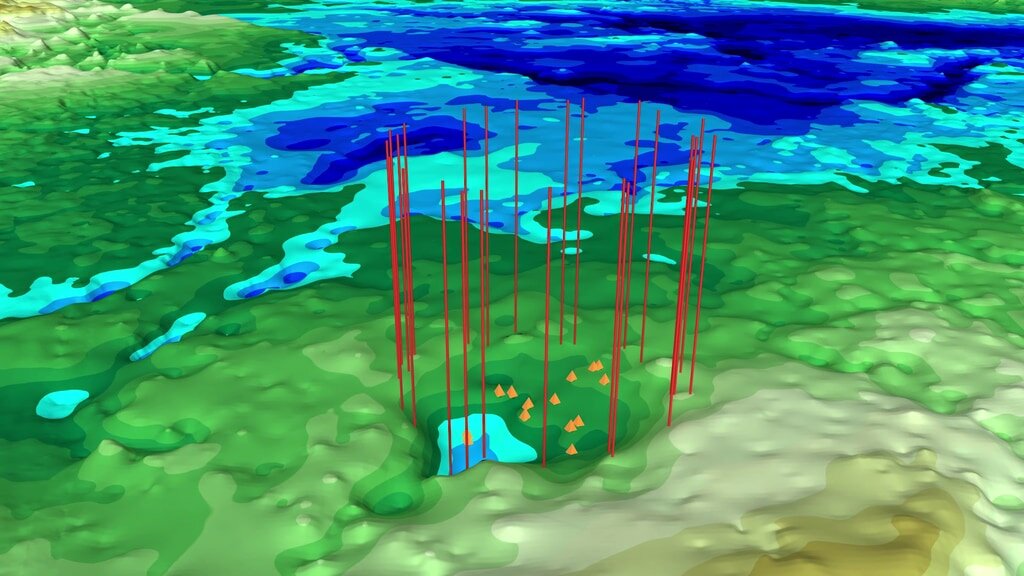NASA Spotted A Second Asteroid Impact Crater Under Greenland

Climate change is affecting the planet, we all know it, but it looks like it’s impacting it in ways we’ve never imagined before. But we’re not going to talk about global warming today. The Earth still has its secrets, that’s the topic, and NASA found two of them. Last year, in November, the US space agency identified the first subglacial crater ever discovered by science. Now, NASA spotted a second crater under Greenland, presumably caused by an asteroid impact, too.
More specifically, this second ancient subglacial crater detected by the US space agency stretches across about 37 kilometers under two kilometers of ice in northwest Greenland. It seems that it formed due to an asteroid impact. If that theory proves correct, then the crater would be 22nd-biggest impact crater on Earth.
Until now, more than 200 asteroid impact craters were found on Earth, but these two are the only ones identified under ice. Also, they are among the few subglacial craters, overall, regardless of what has caused them.
NASA Spotted A Second Asteroid Impact Crater Under Greenland
The discovery of this second crater under Greenland came as a result of the finding of the first subglacial crater spotted by NASA in November last year. Inspired by that great discovery, the US space agency’s researchers kept on surveying the region. Eventually, they spotted this second cavity underneath Greenland’s ice, near the Hiawatha Glacier where the first crater was found.
“The second structure’s morphology is shallower [and] its overlying ice is conformal and older. We conclude that the identified structure is very likely an impact crater, but it is unlikely to be a twin of the Hiawatha impact crater,” wrote NASA glaciologist Joseph MacGregor and his co-authors in their study’s report.
“The possibility of additional subglacial craters beneath the Greenland and Antarctic ice sheets should be investigated, as our discovery further emphasizes the ability of ice sheets to both bury and preserve evidence of terrestrial impacts,” the scientists concluded in their report.
0 comments